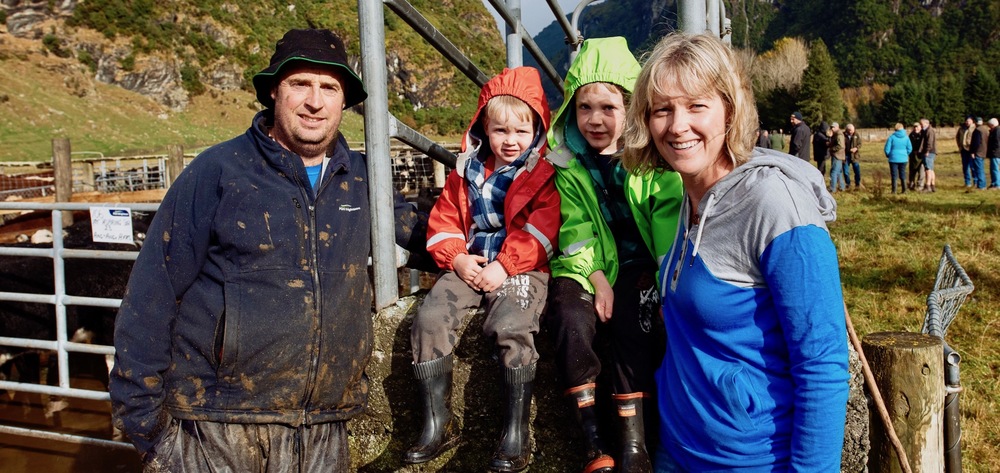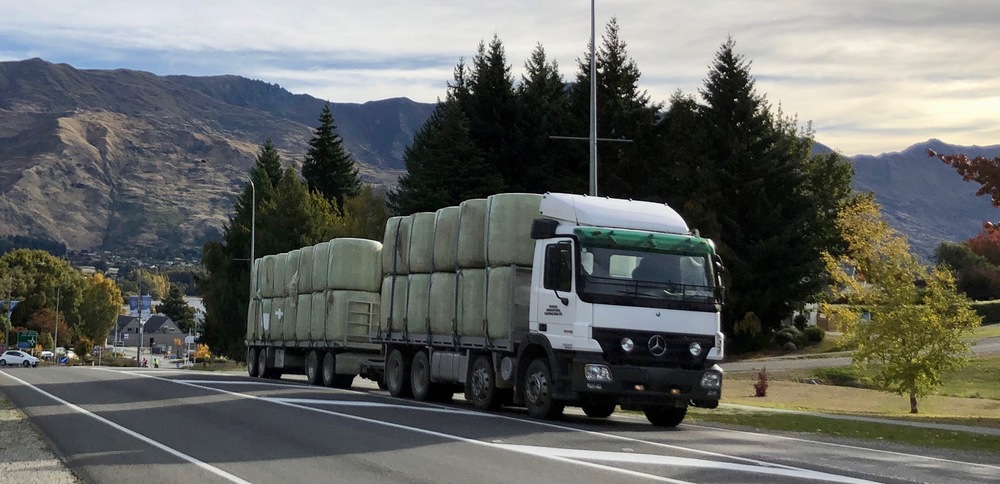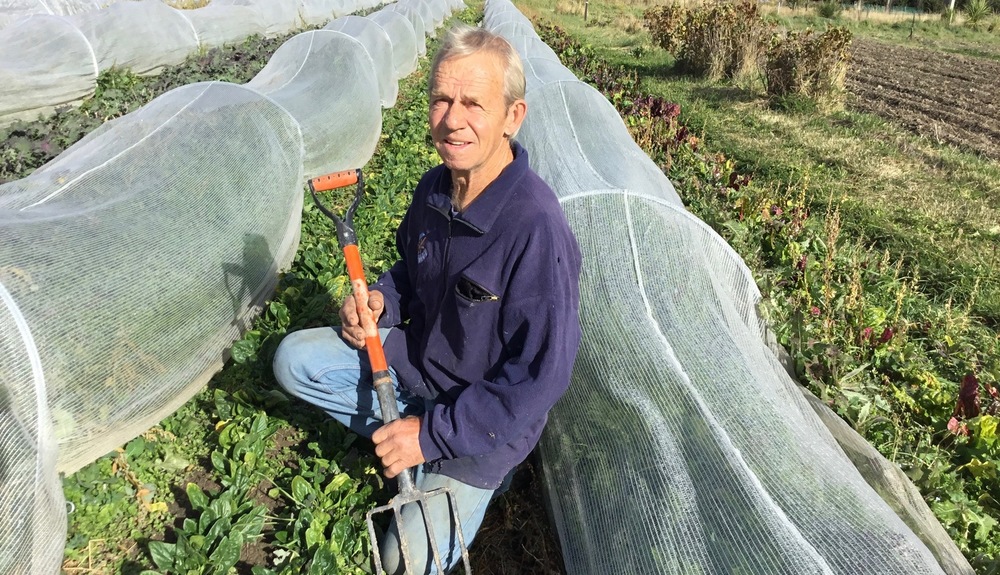Agriculture under COVID-19: a snapshot
Diana Cocks
18 April 2020, 7:27 PM
 Mt Aspiring Station farms cattle and sheep on 2309ha of high country beside Mt Aspiring National Park. PHOTO: Supplied
Mt Aspiring Station farms cattle and sheep on 2309ha of high country beside Mt Aspiring National Park. PHOTO: SuppliedIt hasn’t been business as usual for agricultural operators over the past few weeks, but they are aware their efforts are contributing to keeping the nation fed and aiding the recovery of New Zealand’s economy.
Primary producers such as beef and sheep farmers, agricultural contractors and crop producers are considered essential services under alert level four lockdown.
The Wanaka App caught up with Mt Aspiring Station’s Randall Aspinall, Wanaka agricultural contractor Richard Woodhouse and Hawea Flat market gardener Paul Kummerow.
They each agreed they were better off than some to still be operating during the lockdown. Stock still had to be fed and cared for, pastures needed cultivating, crops harvested, and so on.
Mt Aspiring Station’s sheep and beef farming operation is part way through the autumn season. The autumn muster bringing stock down from the summer high country grazing was completed before the lockdown, Randall said, but calf weaning is yet to occur.

At Mt Aspiring Station everyone in the family pitches in to help with calf-weaning: (L-R) Randall Aspinall with his sons Josh (now six-years-old) and Johnny (now seven-years-old) and wife Allison. PHOTO: Supplied
Calf-weaning usually requires a few extra hands which might prove to be tricky if he can still only access his bubble, which includes his wife and young sons and his full-time stock manager.
More worrying though is the situation with the meat processing works, Randall said. Alliance Group Ltd has three stock processing plants between Oamaru and Southland but all have been forced to reduce their operations under the lockdown. Alliance announced recently it would be standing down around one fifth of its meat workers so it can put into practice the physical distancing of workers at its plants.
“It has dropped their throughput of lamb to about 50 per cent of normal, beef is 60-70 per cent of normal and mutton seems to be almost non-existent,” he said. “And if the works had to close because of an infection it could become a big issue quickly.”
As a result, a lot of farmers are unable to get their stock away to market and are facing an uncertain future where they might have to carry extra stock through the winter.

Wanaka Agricultural Contracting transports baleage from Wanaka to Makarora. PHOTO: Wanaka App
“This could be a looming issue if we have a cold winter as farmers will be carrying more animals than they had feed budgeted for into the winter,” he said.
Randall said he’s managed to sell only half of his approximately 1,500 lambs so far this season “at a price that reflects the current uncertainty”, as finishing farmers are nervous about buying more stock when they cannot get their current stock away to the works.
“We also have to wean the calves in the next month - normally we would sell 320 odd of them. We know we can sell some however, at this stage, there is no market for about half of them.”
He said, depending on how long the tightened response to the pandemic continues, farmers will have “to take a conservative route” as the impact takes a bite out of their income.
“Reduced prices will impact farmers’ bottom lines and some farms are facing some fairly serious logistical issues with stock,” he said. “However, generally speaking (there are exceptions), at this stage we are very lucky compared to many other sectors of the population in NZ and especially in the Southern Lakes.”
“Most farmers I talk to realise how lucky we are to be able to keep operating our businesses and having space for the kids to run round,” Randall said. “They are also very aware of how much stress and hurt there is going to be in much of NZ in the upcoming weeks and months….”
We are currently focused on doing the best we can for our business so that coming out the other side we are in the strongest possible position to help other New Zealanders; many of whom have been very kind to us and our family in the past.”
Wanaka Agricultural Contracting 2017 Ltd has been providing agricultural cultivation, harvesting, mowing and transportation services for more than 30 years.
Wanaka Agricultural Contracting director Richard Woodhead has served three years on, and was recently re-elected to, the board of Rural Contractors New Zealand (RCNZ). He said the board’s membership of 600 has increased recently as more contractors join to stay informed about operational changes under COVID-19, particularly regarding employment.
Richard said, typical of many rural contractors, he employed overseas workers as well as Kiwis, particularly during the busy spring-summer season.
“We employ about seven or eight New Zealanders as well as overseas employees,” he said. The overseas staff are specialists in their industry in their home country and come out to NZ to work specifically for the contractor who employs them.
He said he was fortunate in Wanaka to pick up skifield workers with technical experience at the end of each winter season, some of whom had worked for him for years, but many other contractors struggled to find New Zealanders with sufficient skills to work the hi-tech machinery.
“Employment visas haven’t been a problem in the past but we do foresee an issue going forward with visas not going to be available,” he said.
He said the contracting industry would like to be able to employ more Kiwis but, for the past 15 years, not enough New Zealanders have shown an aptitude for the mechanical and technical training required - “it’s not a job you can pick-up quickly”.

Hawea Flat organic market gardener Paul Kummerow. PHOTO: Supplied
Organic market gardeners Paul Kummerow and his partner Claire Kane tend to employ “woofers” to help them with their fresh produce business Garden Foodz. They’ve been operating at Hawea Flat for around seven years and now have established gardens and tunnel houses over about 2.5ha of land, growing vegetables, herbs and flowers, and providing eggs from their own flock of hens.
This autumn they cut back on production for personal reasons and weren’t employing woofers when the country went into lockdown. (Woofers are volunteers, often from overseas, seeking first-hand experience in organic and ecologically sound growing methods.)
Paul said the next few months will be spent preserving some of the produce he hasn’t been able to sell, such as tomatoes into purees and sauces, but he will also prepare for the coming seasons.
Last year almost 75 per cent of their vegetables and herbs were supplied to local restaurants and much of their flower crop was supplied to a local flower retailer.
Paul said the biggest challenge market gardeners like him will be facing over the next year will be finding suitable local markets for their fresh produce. In his case, this might mean a return to home deliveries, which proved so popular in the past he was overwhelmed by the demand and had to stop deliveries.
“We’re making the most of the lockdown by getting ourselves 100 per cent ready for the spring. It’s an ideal opportunity to get the whole place sorted and ready to go for August planting,” he said.








